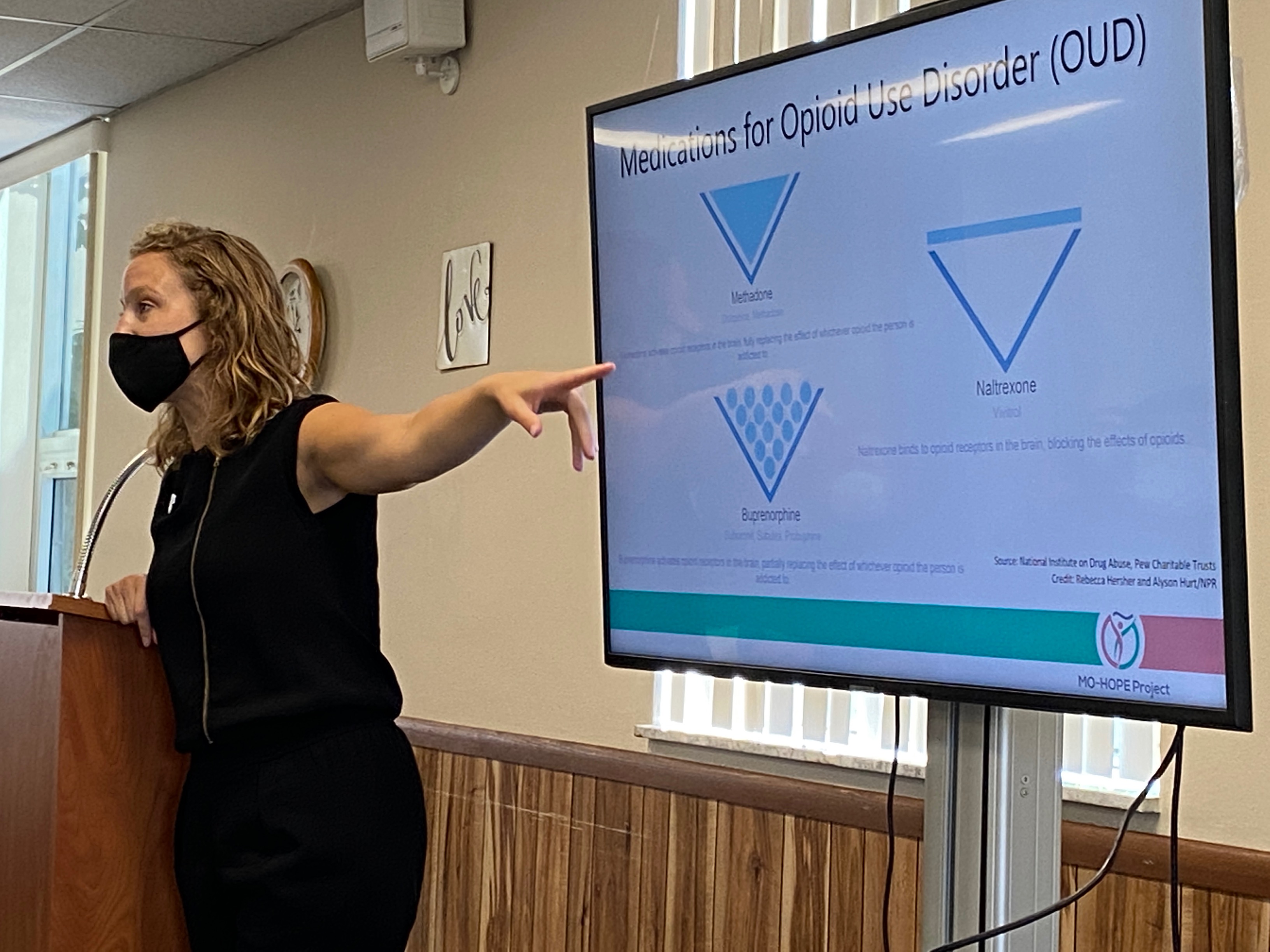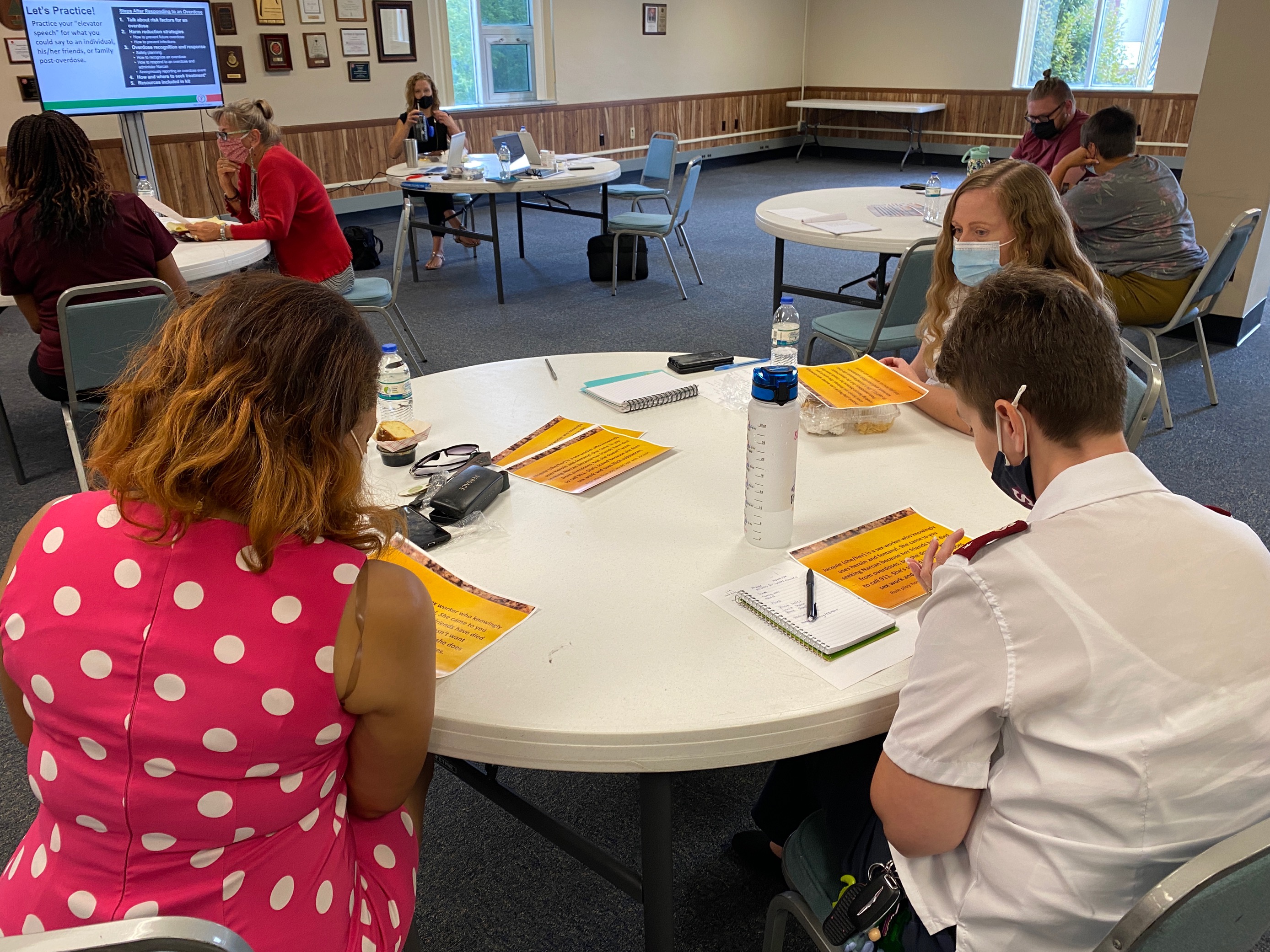PREVENTING OPIOID OVERDOSE DEATHS WITH NARCAN AWARENESS AND AVAILABILITY



The war on opiate drugs has spread across the country, with the Missouri and Southern Illinois region no exception. The Salvation Army is doing its part to combat deadly opiate addiction with training its wide range of personnel throughout the region to learn overdose prevention strategies and to administer the reversal drug Narcan.
Fifteen Salvation Army representatives from corps, emergency disaster services, homeless shelters, and our substance use disorder treatment centers, including St. Louis, Cape Girardeau, Jefferson City, Columbia, and Quincy/Hannibal, assembled at the Salvation Army’s Divisional Headquarters on Aug. 27, to expand understanding of the importance of having Narcan/naloxone on hand and opiate addiction, as part of the Overdose Education and Naloxone Distribution program.
PreventEd will be taking over the opiate education program from the Missouri Opioid-Heroin Overdose Prevention and Education Project (MO-HOPE), as five-year funding for MO-HOPE is set to lapse.
A key tenet of MO-HOPE and The Salvation Army’s life-saving efforts has been to have Narcan/naloxone available to aid the community if necessary to prevent overdose deaths.
The MO-HOPE program has distributed more than 50,000 doses of Narcan/naloxone, saved more than 7,200 lives and trained more than 15,000 people. Its goal has been to reduce opioid overdose deaths through expanded access to overdose education and naloxone, awareness, assessment, and referral to treatment.
The August OEND was a “train the trainers” event for Salvation Army staff, who can teach their fellow employees the same lessons, which ensure the availability and provision of Narcan when community members overdose.
Participants wrote notes about the importance of opioid education at the class.
“Having the capability to utilize Narcan provides an opportunity to connect the person to treatment,” wrote the Salvation Army Midtown Treatment Center’s Holly Allen. “Ongoing treatment will increase the person’s chance of recovery.”
Eden Ryan, of the Quincy Family Services Hannibal Extension, wrote, “In Quincy, opiates have taken the lives of many young, wonderful people. We encounter all walks of life daily. At any moment, someone can get some that is too potent or ingest too much. It is our responsibility as God’s servants to try to help in any way we can. Narcan can save lives and by saving a life, we can encourage change and provide support. Sometimes, that support is all one needs.”
